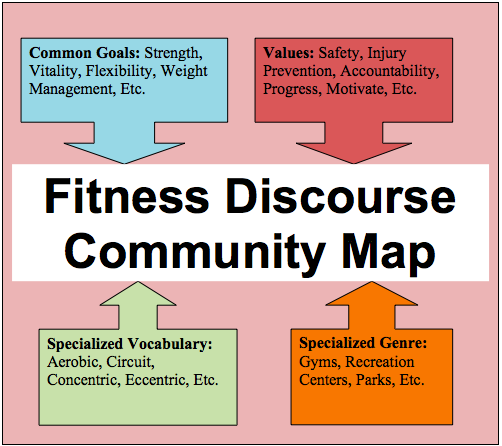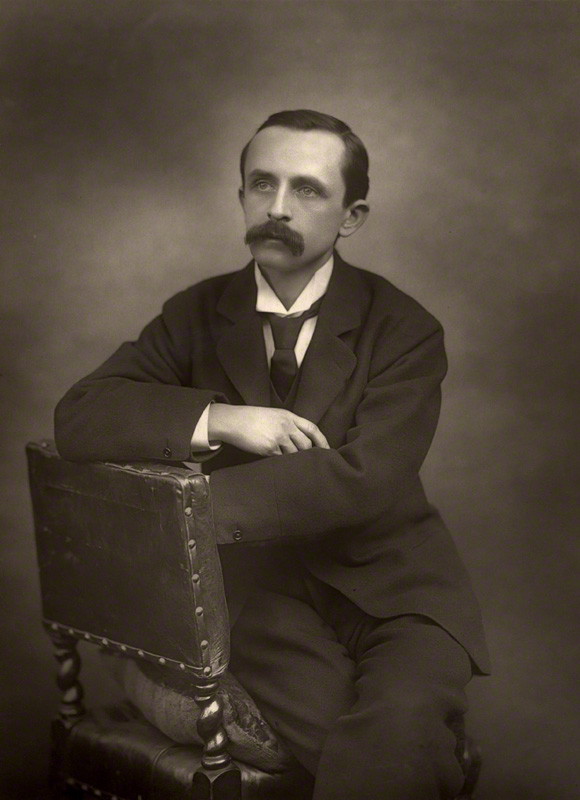|
Discourse Community
A discourse community is a group of people who share a set of discourses, understood as basic values and assumptions, and ways of communicating about those goals. Linguist John Swales defined discourse communities as "groups that have goals or purposes, and use communication to achieve these goals."Borg, ErikDiscourse communities(ELT Journal 57:4) Some examples of a discourse community might be those who read and/or contribute to a particular academic journal, or members of an email list for Madonna fans. Each discourse community has its own unwritten rules about what can be said and how it can be said: for instance, the journal will not accept an article with the claim that "Discourse is the coolest concept"; on the other hand, members of the email list may or may not appreciate a Freudian analysis of Madonna's latest single. Most people move within and between different discourse communities every day. Since the discourse community itself is intangible, it is easier to imagi ... [...More Info...] [...Related Items...] OR: [Wikipedia] [Google] [Baidu] |
Discourse
Discourse is a generalization of the notion of a conversation to any form of communication. Discourse is a major topic in social theory, with work spanning fields such as sociology, anthropology, continental philosophy, and discourse analysis. Following work by Michel Foucault, these fields view discourse as a system of thought, knowledge, or communication that constructs our world experience. Since control of discourse amounts to control of how the world is perceived, social theory often studies discourse as a window into Power (social and political), power. Within theoretical linguistics, discourse is understood more narrowly as linguistic information exchange and was one of the major motivations for the framework of dynamic semantics. In these expressions, denotations are equated with their ability to update a discourse context. Social theory In the humanities and social sciences, discourse describes a formal way of thinking that can be expressed through language. Discourse i ... [...More Info...] [...Related Items...] OR: [Wikipedia] [Google] [Baidu] |
Sociolinguistics
Sociolinguistics is the descriptive, scientific study of how language is shaped by, and used differently within, any given society. The field largely looks at how a language changes between distinct social groups, as well as how it varies under the influence of assorted cultural norms, expectations, and contexts. Sociolinguistics combines the older field of dialectology with the social sciences in order to identify regional dialects, sociolects, ethnolects, and other sub-varieties and styles within a language, as well as the distinctions and variations inside each of these. A major branch of linguistics since the second half of the 20th century, sociolinguistics is closely related to and can partly overlap with pragmatics, linguistic anthropology, and sociology of language, the latter focusing on the effect of language back on society. Sociolinguistics' historical interrelation with anthropology can be observed in studies of how language varieties differ between groups ... [...More Info...] [...Related Items...] OR: [Wikipedia] [Google] [Baidu] |
Rhetorical Modes
The rhetorical modes (also known as modes of discourse) are a broad traditional classification of the major kinds of literary language, formal and academic writing (including Public speaking, speech-writing) by their rhetorical (persuasive) purpose: narration, description, exposition, and argumentation. First attempted by Samuel P. Newman in ''A Practical System of Rhetoric'' in 1827, the modes of discourse have long influenced Teaching writing in the United States, US writing instruction and particularly the design of mass-market writing assessments, despite critiques of the explanatory power of these classifications for non-school writing. Definitions Different definitions of mode apply to different types of writing. Chris Baldick defines mode as an unspecific critical term usually designating a broad but identifiable kind of literary method, mood, or manner that is not tied exclusively to a particular form or genre. Examples are the ''satiric'' mode, the ''ironic'', the ''c ... [...More Info...] [...Related Items...] OR: [Wikipedia] [Google] [Baidu] |
Online Discourse Environment
Computer-mediated communication (CMC) is defined as any human communication that occurs through the use of two or more electronic devices. While the term has traditionally referred to those communications that occur via computer-mediated formats (e.g., instant messaging, email, chat rooms, online forums, social network services), it has also been applied to other forms of text-based interaction such as text messaging. Research on CMC focuses largely on the social effects of different computer-supported communication technologies. Many recent studies involve Internet-based social networking supported by social software. Forms Computer-mediated communication can be broken down into two forms: synchronous and asynchronous. Synchronous computer-mediated communication refers to communication that occurs in real-time. All parties are engaged in the communication simultaneously; however, they are not necessarily all in the same location. Examples of synchronous communication are vi ... [...More Info...] [...Related Items...] OR: [Wikipedia] [Google] [Baidu] |
Community Of Inquiry
The community of inquiry (CoI) is a concept first introduced by early pragmatist philosophers C.S.Peirce and John Dewey, concerning the nature of knowledge formation and the process of scientific inquiry. The community of inquiry is broadly defined as any group of individuals involved in a process of empirical or conceptual inquiry into problematic situations. This concept was novel in its emphasis on the social quality and contingency of knowledge formation in the sciences, contrary to the Cartesian model of science, which assumes a fixed, unchanging reality that is objectively knowable by rational observers. The community of inquiry emphasizes that knowledge is necessarily embedded within a social context and, thus, requires intersubjective agreement among those involved in the process of inquiry for legitimacy. Parable The Buddhist parable of "The Blind Men and an Elephant " offers a colorful way to make sense of the notion of the community of inquiry. The tale finds many ... [...More Info...] [...Related Items...] OR: [Wikipedia] [Google] [Baidu] |
Academic Writing
Academic writing or scholarly writing refers primarily to nonfiction writing that is produced as part of academic work in accordance with the standards of a particular academic subject or discipline, including: * reports on empirical fieldwork or research in facilities for the natural sciences or social sciences, * monographs in which scholars analyze culture, propose new theories, or develop interpretations from archives, as well as undergraduate versions of all of these. Academic writing typically uses a more formal tone and follows specific conventions. Central to academic writing is its intertextuality, or an engagement with existing scholarly conversations through meticulous citing or referencing of other academic work, which underscores the writer's participation in the broader discourse community. However, the exact style, content, and organization of academic writing can vary depending on the specific genre and publication method. Despite this variation, all academic w ... [...More Info...] [...Related Items...] OR: [Wikipedia] [Google] [Baidu] |
Academy Of Management Review
An academy (Attic Greek: Ἀκαδήμεια; Koine Greek Ἀκαδημία) is an institution of tertiary education. The name traces back to Plato's school of philosophy, founded approximately 386 BC at Akademia, a sanctuary of Athena, the goddess of wisdom and skill, north of Athens, Greece. The Royal Spanish Academy defines academy as scientific, literary or artistic society established with public authority and as a teaching establishment, public or private, of a professional, artistic, technical or simply practical nature. Etymology The word comes from the ''Academy'' in ancient Greece, which derives from the Athenian hero, '' Akademos''. Outside the city walls of Athens, the gymnasium was made famous by Plato as a center of learning. The sacred space, dedicated to the goddess of wisdom, Athena, had formerly been an olive grove, hence the expression "the groves of Academe". In these gardens, the philosopher Plato conversed with followers. Plato developed his se ... [...More Info...] [...Related Items...] OR: [Wikipedia] [Google] [Baidu] |
Wanda Orlikowski
Wanda J. Orlikowski is a US-based organizational theorist and Information Systems researcher, and the Alfred P. Sloan Professor of Information Technologies and Organization Studies at the MIT Sloan School of Management, Massachusetts Institute of Technology. Education Orlikowski received her from the University of the Witwatersrand in 1977, an from the same university in 1982, and an and from the New York University Stern School of Business in 1989. Career and research She has served as a visiting Centennial Professor of Information Systems at the London School of Economics and Political Science, and a visiting professor at the Judge Business School at the University of Cambridge. She is currently the Alfred P. Sloan Professor of Information Technologies and Organization Studies at MIT's Sloan School of Management. Orlikowski has served as a senior editor for '' Organization Science'', and currently serves on the editorial boards of ''Information and Organization'' and '' ... [...More Info...] [...Related Items...] OR: [Wikipedia] [Google] [Baidu] |
JoAnne Yates
JoAnne Yates (born 1951) Sloan Distinguished Professor of Management, Emerita at the MIT Sloan School of Management, has worked at the intersection of organization studies and information technology. She has contributed to a number of fields including organizational theory, rhetoric and writing studies, genre theory, business history, archival studies, history of computing, and standardization. She has been recognized as a thought leader in business communication. Her work has achieved awards in several fields, including the Alpha Kappa Psi Award for Distinguished Publication in Business Communication (three times); Outstanding Researcher in Business Communication, the Association for Business Communication; Waldo Gifford Leland Prize of the Society of American Archivists; the Harold F. Williamson, Sr. Prize for Mid-Career Achievement in Business History; Lifetime Service Award from the Organizational Communication and Information Systems Division of the Academy of Management; and ... [...More Info...] [...Related Items...] OR: [Wikipedia] [Google] [Baidu] |
Genre Studies
Genre studies is an academic subject which studies genre theory as a branch of general critical theory in several different fields, including art, literature, linguistics, rhetoric and composition studies. Literary genre studies is a Structuralism#Structuralism in literary theory and literary criticism, structuralist approach to the study of genre and genre theory in literary theory, film theory, and other cultural theory, cultural theories. The study of a genre in this way examines the structural elements that combine in the narratology, telling of a story and finds patterns in collections of stories. When these elements (or Code (semiotics), semiotic codes) begin to carry inherent information, a genre emerges. Linguistic genre studies can be roughly divided into two schools, Systemic Functional Linguistics or "SFL", and English for Specific Purposes or "ESP." Systemic functional linguistics, SFL scholars believe that language structure is an integral part of a text's social con ... [...More Info...] [...Related Items...] OR: [Wikipedia] [Google] [Baidu] |
Marginalization
Social exclusion or social marginalisation is the social disadvantage and relegation to the fringe of society. It is a term that has been used widely in Europe and was first used in France in the late 20th century. In the EU context, the European Commission defines it as ''"a situation whereby a person is prevented (or excluded) from contributing to and benefiting from economic and social progress"''. It is used across disciplines including education, sociology, psychology, healthcare, politics and economics. Social exclusion is the process in which individuals are blocked from (or denied full access to) various rights, opportunities and resources that are normally available to members of a different group, and which are fundamental to social integration and observance of human rights within that particular group (e.g. due process). Alienation or disenfranchisement resulting from social exclusion can be connected to a person's social class, race, skin color, religious af ... [...More Info...] [...Related Items...] OR: [Wikipedia] [Google] [Baidu] |




